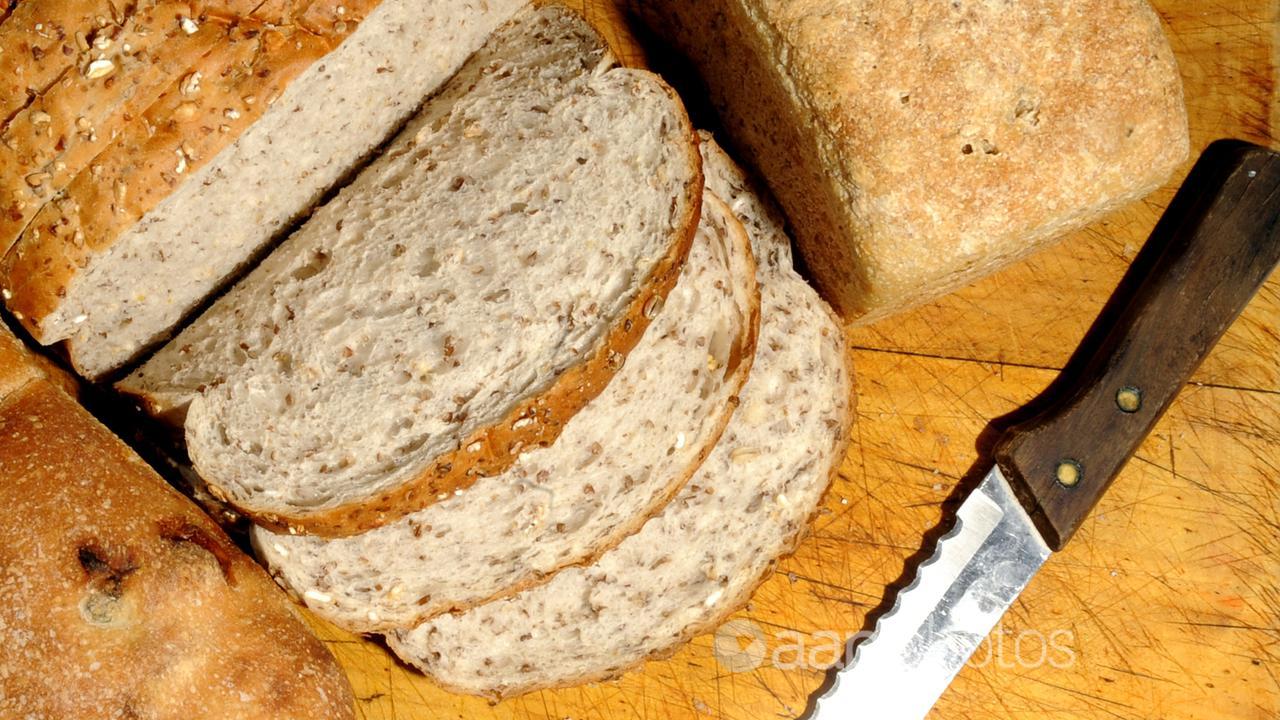Coeliac disease experts admit they’re not sure why people develop the illness but they are certain there’s no evidence that strep bacteria is to blame.
An Instagram post claims streptococcus causes intestinal inflammation and “wheat gluten is the main food it feeds off to survive”. The post says it’s not possible for gluten to produce symptoms associated with coeliac disease and therefore it is instead “due to the toxins released by strep bacteria”.
The June 1 post attributes its claim to an alternative medicine Instagram account and website which further states coeliac is not a genetic disease and is instead inflammation from strep of which gluten is but one trigger.
Experts told AAP FactCheck the information is false. While there is much more to learn about what triggers coeliac disease, studies have not shown strep bacteria is linked with its development. Streptococcus is more commonly associated with throat infections and cellulitis.
Coeliac Australia says the disease affects about one in 70 Australians. The immune system of sufferers reacts abnormally to gluten, a protein found in wheat, rye, barley and oats, used in food products such as bread and pasta. The condition causes the villi – small, finger-like projections – that line the small bowel, or small intestine, to become inflamed and flattened making it difficult to absorb nutrients.
People must be born with the genetic predisposition to develop the disease. The Australia government’s Health Direct website says environmental factors can trigger coeliac disease at any age in people who carry the genes (HLA DQ2 and HLA DQ8) for the disease. “Factors thought to play a role include a previous gastrointestinal infection (such as a rotavirus infection), or a person’s diet during early childhood,” the site says.
Associate Professor Jason Tye-Din, a coeliac researcher and gastroenterologist with the Walter and Eliza Hall Institute in Melbourne, said there is no evidence the disease is caused by strep bacteria.
“Treating coeliac disease with antibiotics against strep does not cure it. If only it did, that would be amazing and change the lives of millions of sufferers around the globe. Plus, I could stop researching a cure!” he told AAP FactCheck by email.
“Coeliac disease is an immune illness that occurs in people with genetic susceptibility and is triggered by the consumption of dietary gluten. The only treatment people have at the moment is a lifelong and strict gluten-free diet.”
Dr Tye-Din said one potential trigger of coeliac disease was infections, including from viruses and bacteria, causing disturbances in the gut microbiome.
“However, studies to date have not shown strep bacteria to be associated with coeliac disease development,” he said. “Indeed, studies have shown strep bacteria are less common in the small intestines of people with active coeliac disease compared to people without.”
Professor Andrew Day, a coeliac researcher at the University of Otago, said there’s no evidence linking coeliac disease to strep infection or bacterial toxins due to strep.
“Bacteria (and other organisms) are important in coeliac disease,” he told AAP FactCheck in an email. “There is lots of work looking at bugs (bacteria or viruses) that can ‘trigger’ the cascade that leads to someone developing coeliac disease.
“There are important organisms that live in the small bowel that may be involved as triggers. Human and animal studies show this clearly: the bugs present in people with coeliac disease differ from others. Proteobacteria is one such bacteria.
“Streptococcus is not implicated at this level at all. Published work does not provide any evidence that coeliac disease is the direct consequence of the presence of strep.”
Associate Professor Kirsten Coppell, co-director of the Department of Medicine at the University of Otago, also told AAP FactCheck in an email she could find nothing in scientific literature to support the claim streptococcal infection caused coeliac disease.
The Verdict
The claim coeliac disease is linked to strep bacteria (streptococcus) is false. Experts have told AAP FactCheck there is much more to learn about what triggers coeliac disease, but there’s no scientific evidence to show strep bacteria is associated with its development or onset.
False – The claim is inaccurate.
AAP FactCheck is an accredited member of the International Fact-Checking Network. To keep up with our latest fact checks, follow us on Facebook, Twitter and Instagram.
All information, text and images included on the AAP Websites is for personal use only and may not be re-written, copied, re-sold or re-distributed, framed, linked, shared onto social media or otherwise used whether for compensation of any kind or not, unless you have the prior written permission of AAP. For more information, please refer to our standard terms and conditions.


















